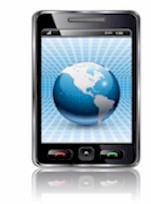|
|
DSC Tech Library
 This section of our technical library presents information and documentation relating to Call Center Company Technology and Best Practices plus software and products.
Since the Company's inception in 1978, DSC has specialized in the development of communications software and systems. Beginning with our CRM and call center applications, DSC has developed computer telephony integration software and PC based phone systems. These products have been developed to run on a wide variety of telecom computer systems and environments.
This section of our technical library presents information and documentation relating to Call Center Company Technology and Best Practices plus software and products.
Since the Company's inception in 1978, DSC has specialized in the development of communications software and systems. Beginning with our CRM and call center applications, DSC has developed computer telephony integration software and PC based phone systems. These products have been developed to run on a wide variety of telecom computer systems and environments.
The following article presents product or service information relating to Call Center Vendors and customer service help desks.
Outsourcing Customer Technical Support - Successfully
By: Doug Fulmer, Director of Sales
Seneca Corporation
In golf they say, "Drive for show, but putt for dough". The meaning is that while the high-visibility drive with all its strength and flash is exciting to watch, executing the small, down-to-earth, four-foot putt - consistently - really improves scoring. Carry that idea over to technology products. We sell products and solutions to add customers, but we provide excellent customer support to build profitable relationships. The Customer Relationship Management industry evolved from the necessity to provide customer-specific, focused, intuitive customer support. We have learned that satisfied users drive loyalty and retention. This leads to both add-on sales and higher profits.
A flood of customer support requests, ranging from the simple to the impossible, deluges many organizations. In 2003, requests arrive via multiple channels: telephone, e-mail, chat/IM, fax and portals. Some organizations are only bailing water as they struggle against the flood. These organizations are faced with the challenge of gearing up - or expanding - their customer support operations. Building and growing long-term relationships with the organization's most valued customers requires investing in an expensive, resource-intensive platform, capable of winning customer loyalty, every day, through every support request.
How do you build a customer support operation from the ground up, without making serious mistakes and bad investments? The right mix of people, process, practices and technology can be a difficult, delicate relationship channel to create. Don't try this at home!
For an increasing number of organizations the answer lies in outsourcing. If you haven't already outsourced your technology product customer support, in 2003 you will probably at least consider it. We are talking about turning over some, or all of your customer support requests to a third party….a specialist in customer technical support.
The Business Case for Outsourcing
Outsourcing customer technical support involves both technical and business considerations. First, this appears to be the "Decade of Outsourcing." IT, call center, telecommunications, CRM and software development periodicals and conferences place a significant emphasis on outsourcing. In the right situation, outsourcing may enable your organization to save money, increase your ROI (return on investment) and optimize scarce resources, while providing customers access to timely and successful support.
Imagine yourself a software supplier with a hot, new product. (Perhaps you are!) Development, testing, launch, marketing and sales campaigns are behind you. The acceptance is positive. Customers are buying, installing and using your new product. Great! Now, new customers need customer support. If no customer support group is in place, who will handle calls and e-mails from new customers using your product?
One such organization sends customer calls to the engineers and developers closest to the product. The good news is that they really understand everything about the software, its interfaces, even the code. They may not, however, be the patient, customer-friendly representatives it takes to handhold a rookie user through "What's a browser?" questions. Worse, if the developers are handling customer calls, no one is developing new products and new releases. This can result in the misuse of important resources, resulting loss of productivity, competitive advantage and profit.
Some organizations delegate the task of fielding customer support calls and e-mails to non-technical staff. The idea is that, with experience, they will be able to handle the easy requests, escalating Tier 2 and 3 requests to the developers. This approach can offer more potential problems than the first example. The non-technical staffers may be able to help with passwords but may actually be at a loss when confronted with "What's a browser?" questions. The customer, who can't use the program, loses confidence in the provider and may stifle future sales. Bad CRM!
Choosing a Customer Support Partner
Trusting another organization with your client relationships is obviously a critical decision. Five of the most important criteria to be evaluated in your decision are:
1) Business Stability The idea of cutting costs by going with a start-up outsourcer can lead to tragedy. Three techies, a T1 and a toll free number may offer low establishment and recurring fees but might lack the resources, stability and depth needed to sustain client relationships. Find a partner with many years' experience, significant bench strength, a financial track record and repeat clients.
2) Total Customization Your organization is unique. Your clients' requirements may be highly individualized. You may have many differing support agreements. The way you need your callers to be greeted might be a one-of-a-kind. Your triage, patches, fixes and escalations need to be handled to fit your strategy and your customers' requirements. Look for organizations that are extremely flexible and whose technology and practices are highly customizable. Your partner should be easily able to morph to fit you, not the other way around.
3) Not Your Typical Call Center Outsourcer The teleservices industry is made up of dozens of skilled, capable, stable outfits. For non-technical sales, marketing, service, locator, fulfillment, outbound and many other applications, they can do a super job. Most of the employees in most of these firms, however, did not chose an IT or technology career. Often, these organizations are not even interested in technical support engagements because of the high cost of additional training and the possibility of failure. Don't enter into a relationship, which causes the outsourcer to stretch too much.
4) Now-Gen Technology Since technology product customer support usually requires information from multiple repositories to come together, you will likely need an outsourcer with CTI (computer/telephony integration), eCRM (electronic customer relationship management) and a robust service request management system. The support specialist needs client "tombstone" information, accounts, passwords and the service request history. They must also have access to your product information, FAQs (frequently asked questions), downloadable fixes and auto-gen e-mail answers. In 2003, the best systems are Web-based and highly customizable.
5) It's All About People In addition to systems, knowledge bases, reporting and APIs (applications programming interfaces), it takes special people to provide superior outsourced technology product customer support. First and foremost, you need a partner staffed with customer satisfaction-focused personalities. If they are "bothered" by stupid questions or get rid of callers by escalating everything, you are not well represented. It is often easier to train someone in the technology - who already enjoys talking with customers - than the reverse. Make sure that the majority of the support reps can handle all Tier 1 requests solo. There must also be an adequate number of more senior consultants ready to tackle the more challenging Tier 2 requests.
Outsourcing non-core business processes like technology product customer support has the potential to enable organizations to reduce operating costs, optimize resources, focus on business objectives and improve customer loyalty. The challenge is to find the right partner who can - and will - give the customer the support experience you require to build relationships.
About Seneca Corporation
Seneca Corporation is a single source provider for outsourced and in-house technology support and helpdesk services. Clients include Fortune 1000 companies and government agencies. Seneca provides the highest level of phone, email and web-based support. Their approach is highly personalized, providing quality support tailored to the specific needs of the client's users and customers. Seneca enables its clients to focus on their critical missions while Seneca provides a wide spectrum of support, services and solutions for their customers and employees. Please visit www.seneca.com.
CRM Call Center Software
 Database Systems Corp. (DSC) has been providing CRM Customer Relationship Management solutions to businesses and organizations for 2 decades.
TELEMATION is a Customer Relationship Management (CRM) application employed in a wide variety of organizations including contact centers, help desks, customer service centers, service bureaus, reservation centers and corporate call centers. The package has extensive CTI features and is fully integrated with our PACER phone system. TELEMATION operates on Linux, Unix or Windows servers. Software programmers can develop call center applications quickly using the robost features found in the Telemation toolkit.
Database Systems Corp. (DSC) has been providing CRM Customer Relationship Management solutions to businesses and organizations for 2 decades.
TELEMATION is a Customer Relationship Management (CRM) application employed in a wide variety of organizations including contact centers, help desks, customer service centers, service bureaus, reservation centers and corporate call centers. The package has extensive CTI features and is fully integrated with our PACER phone system. TELEMATION operates on Linux, Unix or Windows servers. Software programmers can develop call center applications quickly using the robost features found in the Telemation toolkit.
Call Center Phone System
 The PACER is a call center phone system that handles inbound and outbound calls for a wide range of contact centers. Calls are either initiated by the phone system or accepted from the outside and distributed in an intelligent fashion to your service agents. The PACER includes ACD and IVR components, plus call recording capability. Using industry standard components, the PACER phone system has features and functions that can only be found in large scale PBX’s, but at a fraction of the cost. And the PACER has predictive dialing capability that cannot be found in most of these larger phone systems. The PACER phone system can connect calls to your employees working at home or in a local or remote office. The PACER communicates with applications written on Unix, Linux, or PC servers over a LAN. For a complete product presentation, download our PACER demo.
The PACER is a call center phone system that handles inbound and outbound calls for a wide range of contact centers. Calls are either initiated by the phone system or accepted from the outside and distributed in an intelligent fashion to your service agents. The PACER includes ACD and IVR components, plus call recording capability. Using industry standard components, the PACER phone system has features and functions that can only be found in large scale PBX’s, but at a fraction of the cost. And the PACER has predictive dialing capability that cannot be found in most of these larger phone systems. The PACER phone system can connect calls to your employees working at home or in a local or remote office. The PACER communicates with applications written on Unix, Linux, or PC servers over a LAN. For a complete product presentation, download our PACER demo.
|


 This section of our technical library presents information and documentation relating to
This section of our technical library presents information and documentation relating to  Database Systems Corp. (DSC) has been providing CRM Customer Relationship Management solutions to businesses and organizations for 2 decades.
TELEMATION is a Customer Relationship Management (CRM) application employed in a wide variety of organizations including contact centers, help desks, customer service centers, service bureaus, reservation centers and corporate call centers. The package has extensive CTI features and is fully integrated with our PACER phone system. TELEMATION operates on Linux, Unix or Windows servers. Software programmers can develop call center applications quickly using the robost features found in the Telemation toolkit.
Database Systems Corp. (DSC) has been providing CRM Customer Relationship Management solutions to businesses and organizations for 2 decades.
TELEMATION is a Customer Relationship Management (CRM) application employed in a wide variety of organizations including contact centers, help desks, customer service centers, service bureaus, reservation centers and corporate call centers. The package has extensive CTI features and is fully integrated with our PACER phone system. TELEMATION operates on Linux, Unix or Windows servers. Software programmers can develop call center applications quickly using the robost features found in the Telemation toolkit.
 The PACER is a call center phone system that handles inbound and outbound calls for a wide range of contact centers. Calls are either initiated by the phone system or accepted from the outside and distributed in an intelligent fashion to your service agents. The PACER includes ACD and IVR components, plus call recording capability. Using industry standard components, the PACER phone system has features and functions that can only be found in large scale PBX’s, but at a fraction of the cost. And the PACER has predictive dialing capability that cannot be found in most of these larger phone systems. The PACER phone system can connect calls to your employees working at home or in a local or remote office. The PACER communicates with applications written on Unix, Linux, or PC servers over a LAN. For a complete product presentation, download our PACER demo.
The PACER is a call center phone system that handles inbound and outbound calls for a wide range of contact centers. Calls are either initiated by the phone system or accepted from the outside and distributed in an intelligent fashion to your service agents. The PACER includes ACD and IVR components, plus call recording capability. Using industry standard components, the PACER phone system has features and functions that can only be found in large scale PBX’s, but at a fraction of the cost. And the PACER has predictive dialing capability that cannot be found in most of these larger phone systems. The PACER phone system can connect calls to your employees working at home or in a local or remote office. The PACER communicates with applications written on Unix, Linux, or PC servers over a LAN. For a complete product presentation, download our PACER demo.